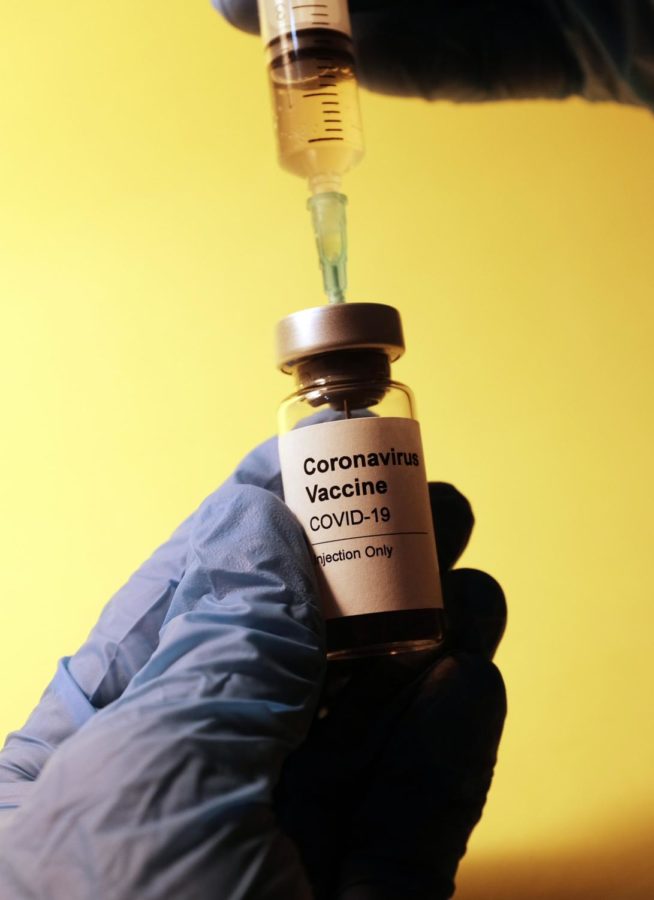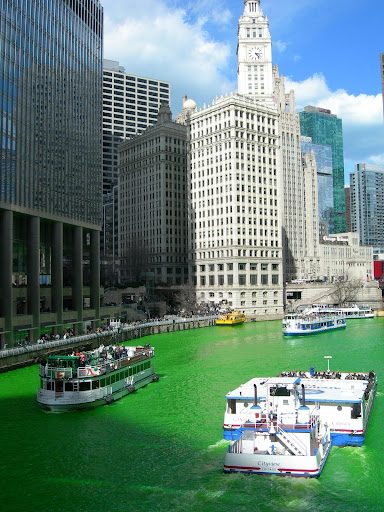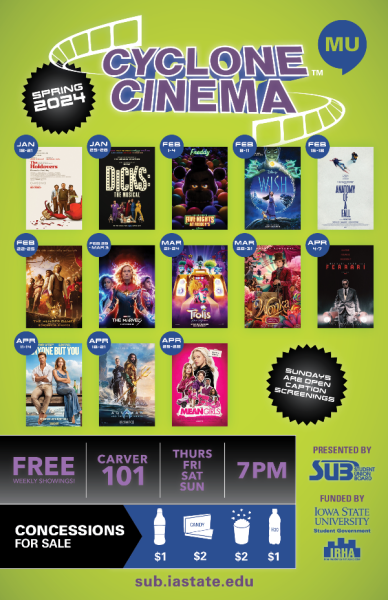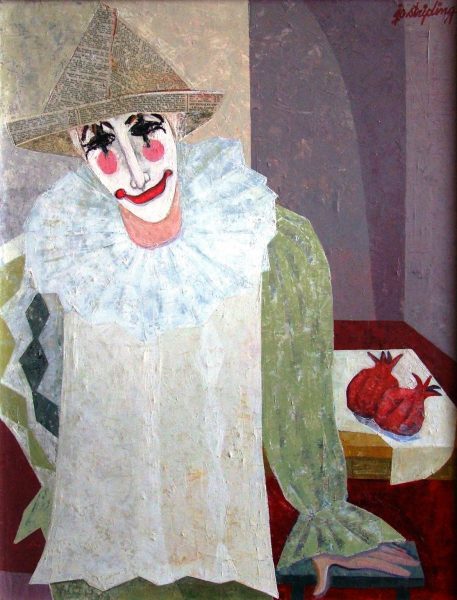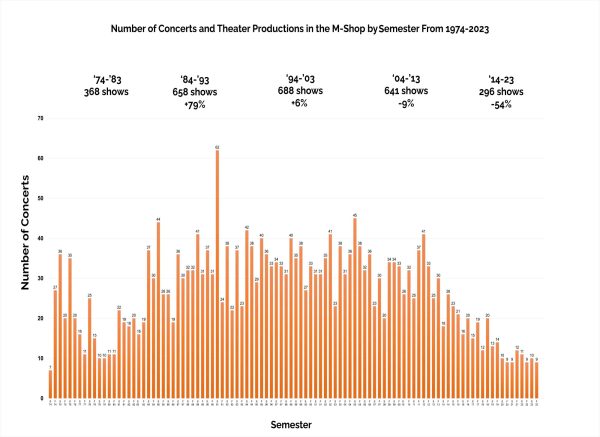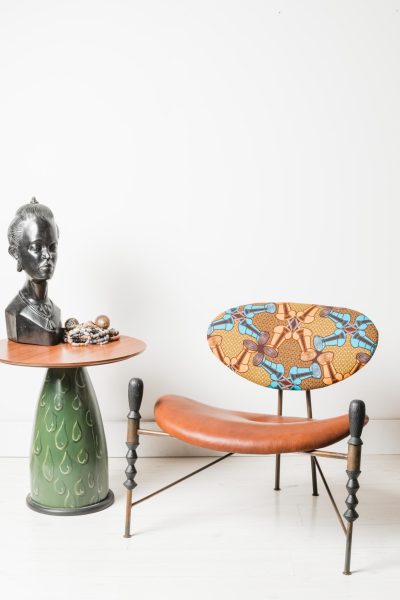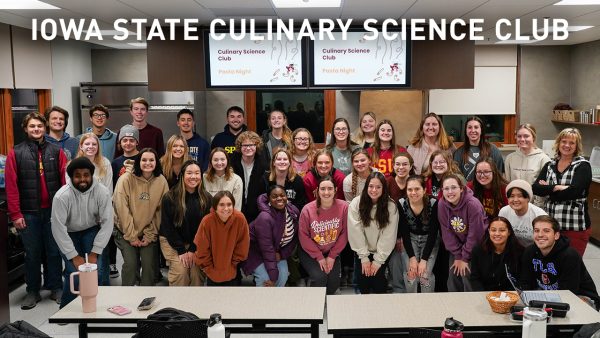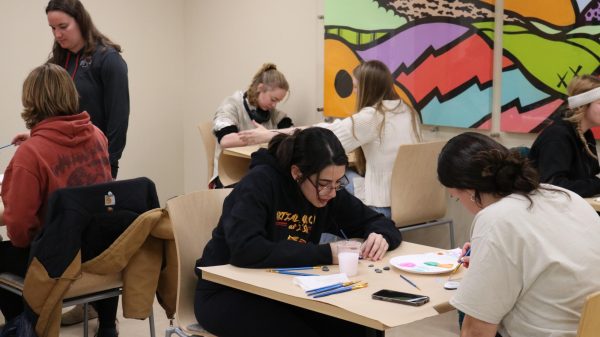Students share their experiences receiving the COVID-19 vaccine
March 30, 2021
Three Iowa State students shared their experiences receiving the COVID-19 vaccine and what they did during and after the process.
Ella Voloshen got her first dose of the vaccine at HyVee in Ames on Tuesday.
For Voloshen, the vaccine was like a weight lifted off her shoulders because she’s almost fully protected from COVID-19 and has less worries about potentially exposing her immunocompromised friends and family.
“I was super excited. I did a little ‘yay’ when she gave me the shot. And, I just felt at peace about it. I definitely took a selfie,” Voloshen said. “I had to go to work right afterwards, but my coworkers and I talked and celebrated at work because all of my coworkers have been vaccinated at least one dose so far. I was excited just because it is a stepping stone to some sense of normalcy again.”
She advised people to keep others educated about how and where to get the vaccine because it is a struggle for so many people.
“I think people need to be aware of the stigmatization around vaccines in general and how hard it is for different groups to get vaccines, like the people who aren’t necessarily able to get the HIV vaccine,” Voloshen said. “And I think people need to be aware of just helping and sharing ways to get the vaccine and how to get the vaccine, if that is available to those people.”
Carmen Wesselman is another student at Iowa State that got the vaccine. She got her first dose March 23 at the Mary Greeley Medical Center.
Wesselman is a big advocate for science and recently started working at the hospital in addition to taking classes full time. She got her vaccine randomly in the middle of a work shift.
“I definitely took a selfie with my vaccine card, I’m not gonna lie,” Wesselman said. “Since I was at work, I wasn’t able to dress up at all, but I did allow myself the next day to rest.”
The vaccine could be a celebratory moment for some because the advances in medicine gives people the opportunity to be protected from COVID-19. For some, the vaccine is a relief and a big step toward the normalcy of social gatherings once again.
“It was cool to realize that this was something so big that’s kind of been shaping part of so many people’s lives for the past year, and then [that] this is something really awesome that I’m going to be able to tell my future kids and family about,” Wesselman said. “And just that kind of aspect, knowing that I was getting something that would help save people’s lives, was really rewarding for me, I think just because I was amazed at how far and how fast we can work in medicine now that the field is moving.”
For Wesselman, the vaccine gave her a sense of relief for herself and others.
“It gives me some sort of ease of mind with work and just out in the real world, especially with classes, you know, going back to normal in the fall, it’s awesome that once vaccines get more widely distributed, it will give a lot of students peace of mind with going back to a lot of in-person classes I think especially,” Wesselman said.
Brooke Burnett has a different perspective and a unique experience when it came to her COVID-19 vaccine.
Besides being a full-time nutritional science and pre-med major at Iowa State, Burnett worked on the COVID-19 unit in summer 2020 as a patient care technician at MercyOne Waterloo Medical Center.
Burnett received her first dose of the vaccine Dec. 23.
“I got it before everyone else did, and so I didn’t really get to celebrate and be around other people,” Burnett said. “And it was more of an internal celebration. I would say I think it was bittersweet because I worked with a lot of patients that didn’t make it and didn’t get the vaccine, you know, this is the point they were all waiting for, you know, this was the moment that all their families were hoping for that they didn’t get. And so for me, I kind of celebrated it for them because they couldn’t.”
Public health is a privilege for people in the United States. Taking the vaccine is not an option for everyone here in the United States and outside of the country. The opportunity to receive the vaccine depends on a number of different factors.
“I think it should be a celebratory moment and a bittersweet one because you’re getting something that 500,000-plus people can’t,” Burnett said.
Burnett also believes more people who have the option to be vaccinated should take the opportunity.
“Get vaccinated, if not for yourself, for people you interact with — you expose more people than you think,” Burnett said. “And I don’t think anyone wants a positive case on their conscience, you know, something that could have been prevented, because all of those 500,000 cases could have been prevented.”

